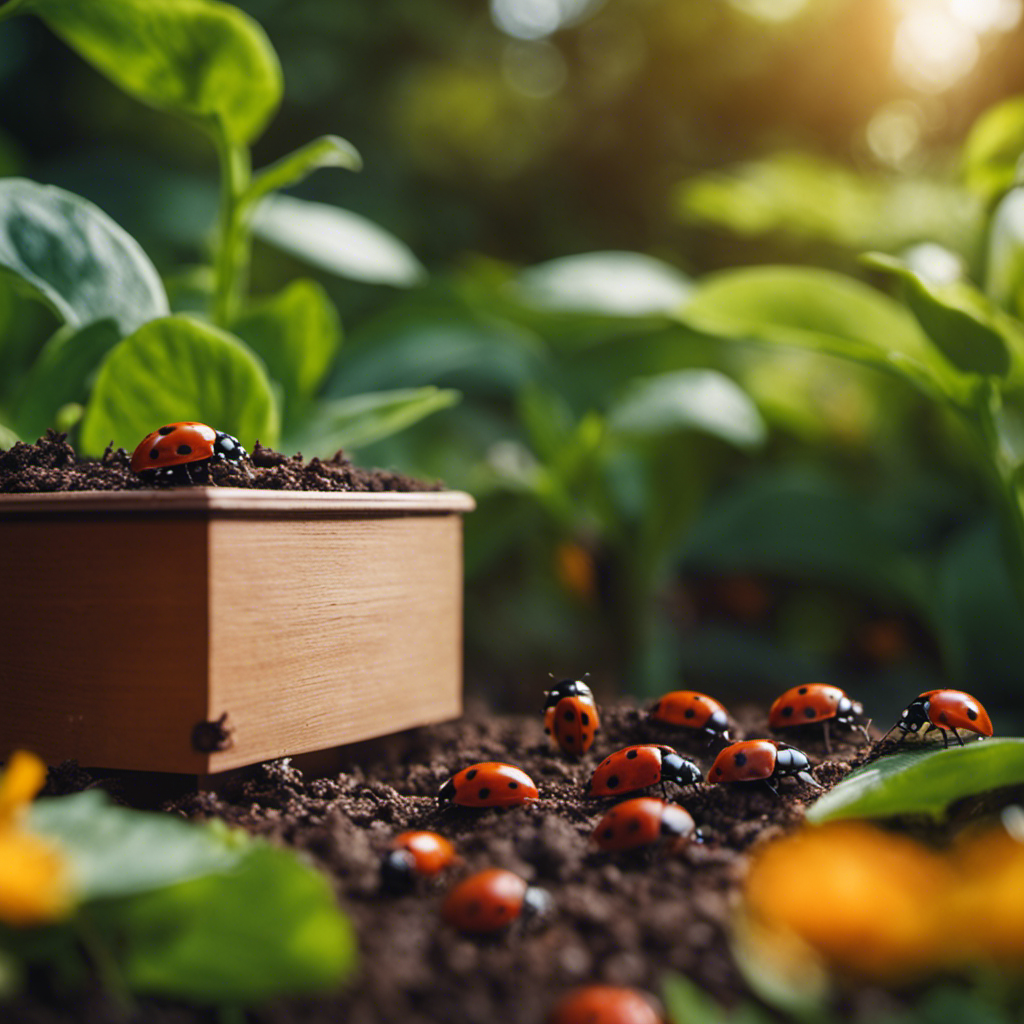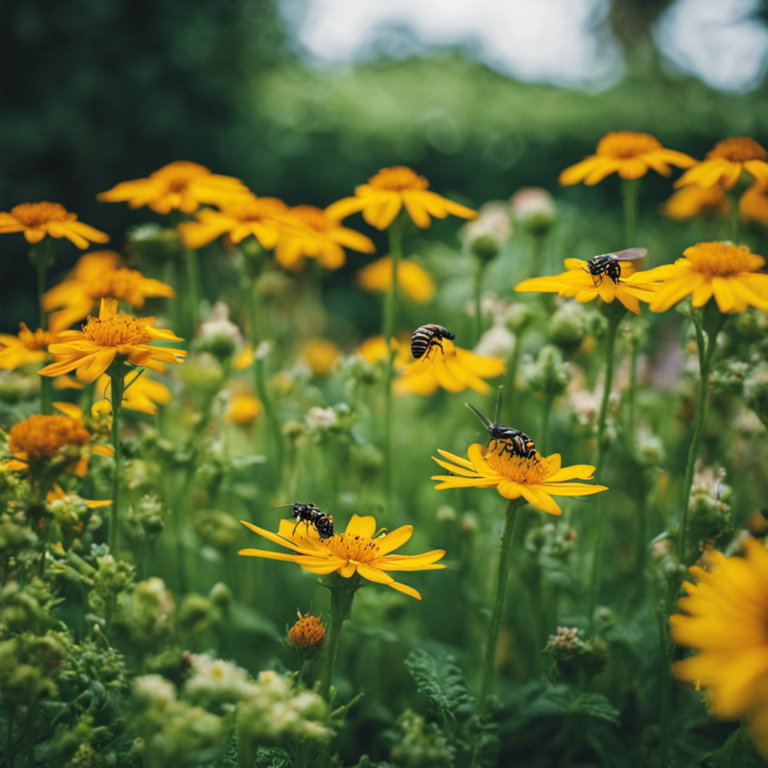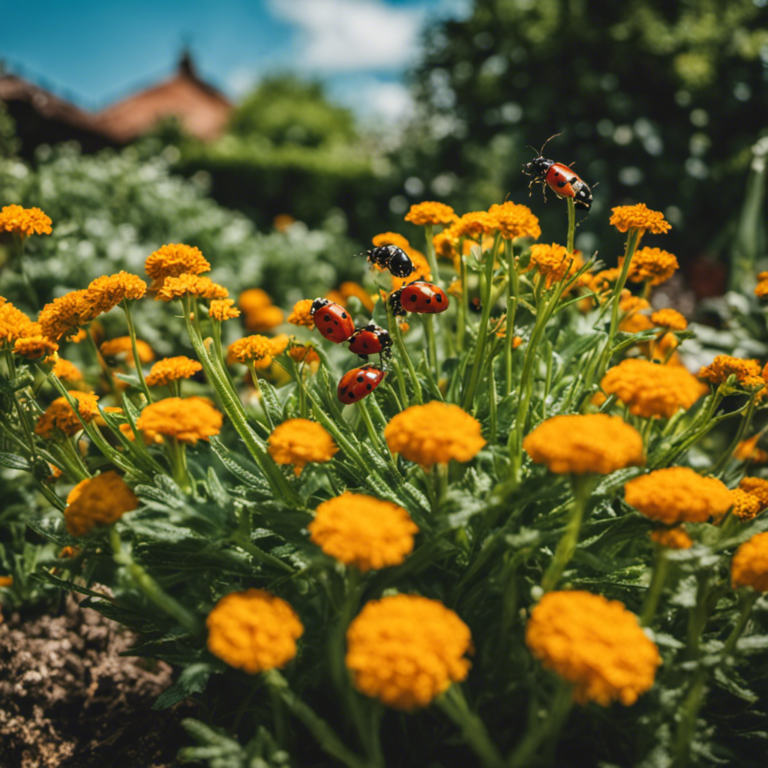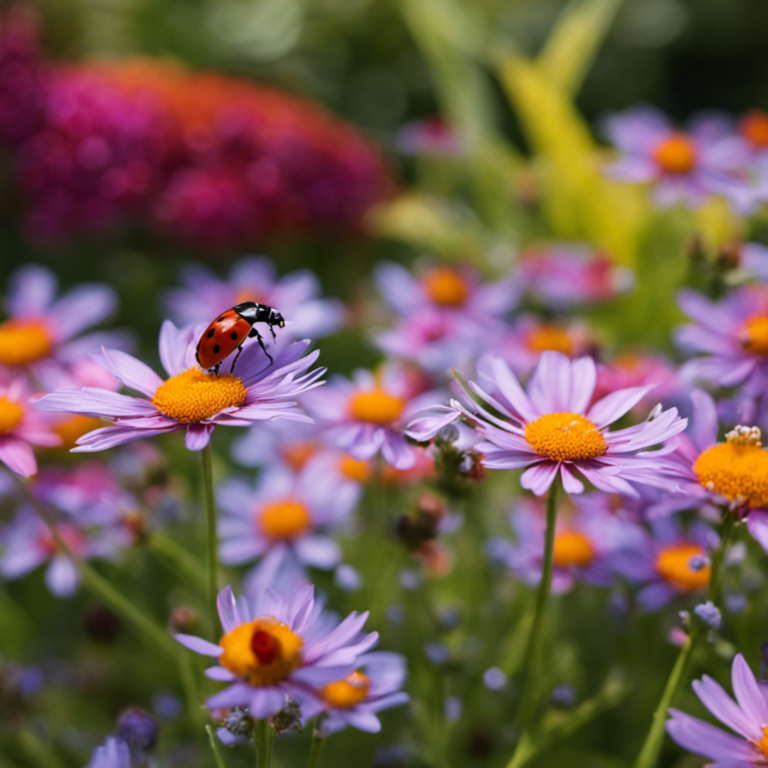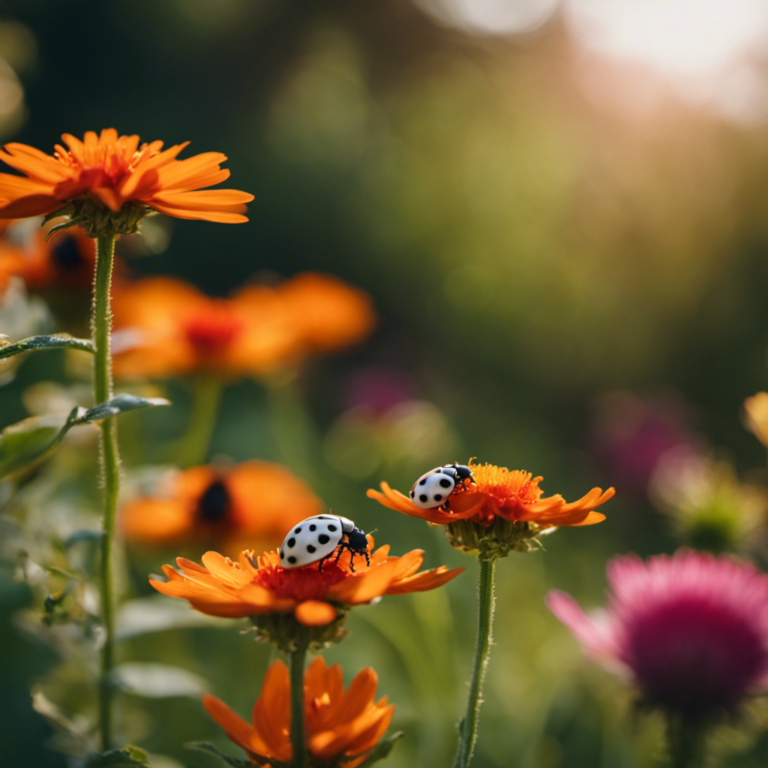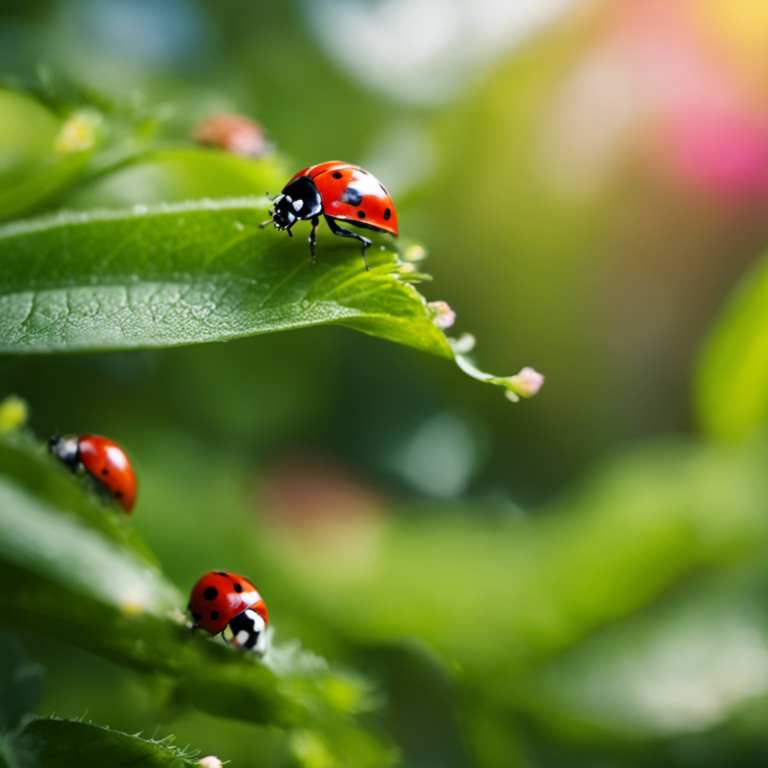Did you know that the average household uses approximately 7.3 pounds of pesticides every year?
If you’re searching for a safer and more environmentally-friendly way to control pests in your garden, this Green Thumb Guide is here to help.
Explore natural repellents, beneficial insects, physical barriers, organic sprays, and crop rotation techniques that will assist you in maintaining healthy and thriving plants without causing harm to the environment.
Bid farewell to harmful chemicals and say hello to a greener garden.
Key Takeaways
Adopting eco-friendly methods for controlling pests is not only beneficial for our plants and crops, but it also helps create a healthier and more sustainable environment. Instead of using harmful chemicals, we can rely on natural repellents and promote the presence of beneficial insects to manage pests effectively. Implementing physical barriers and practicing crop rotation are also effective strategies. Additionally, utilizing organic sprays can help us control pests without causing harm to the ecosystem. By doing a little research and putting in some effort, we can develop a green thumb while minimizing our impact on the planet.
Natural Repellents
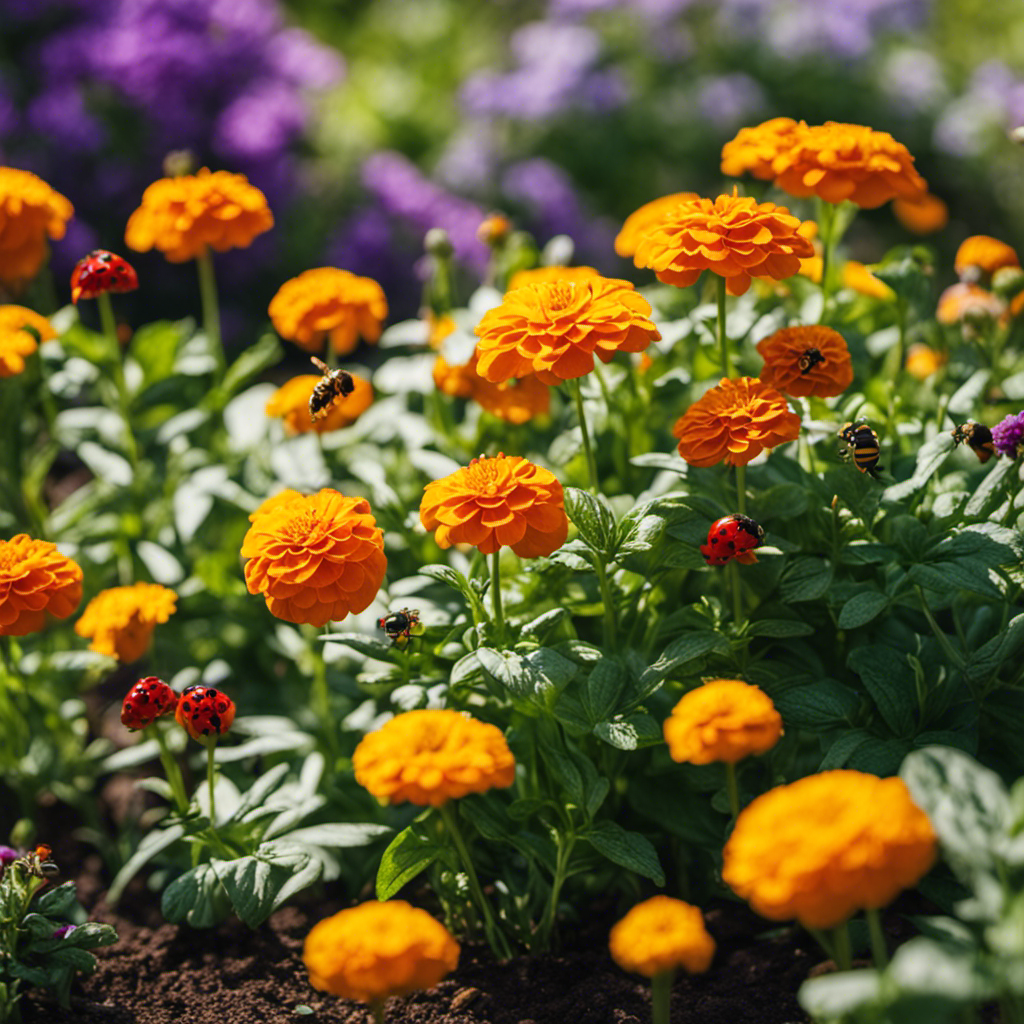
To effectively repel pests, you can rely on natural methods that are safe for the environment. One effective method is using essential oils, such as peppermint, lavender, and citronella. These oils have natural properties that repel pests like mosquitoes, ants, and flies. You can easily create your own natural repellent by mixing a few drops of these oils with water in a spray bottle. Simply spray this mixture in areas where pests are a problem.
Another natural repellent technique is companion planting. This involves planting specific plants that naturally repel pests next to your vulnerable plants. For example, marigolds are known to deter aphids, nematodes, and other garden pests.
Beneficial Insects
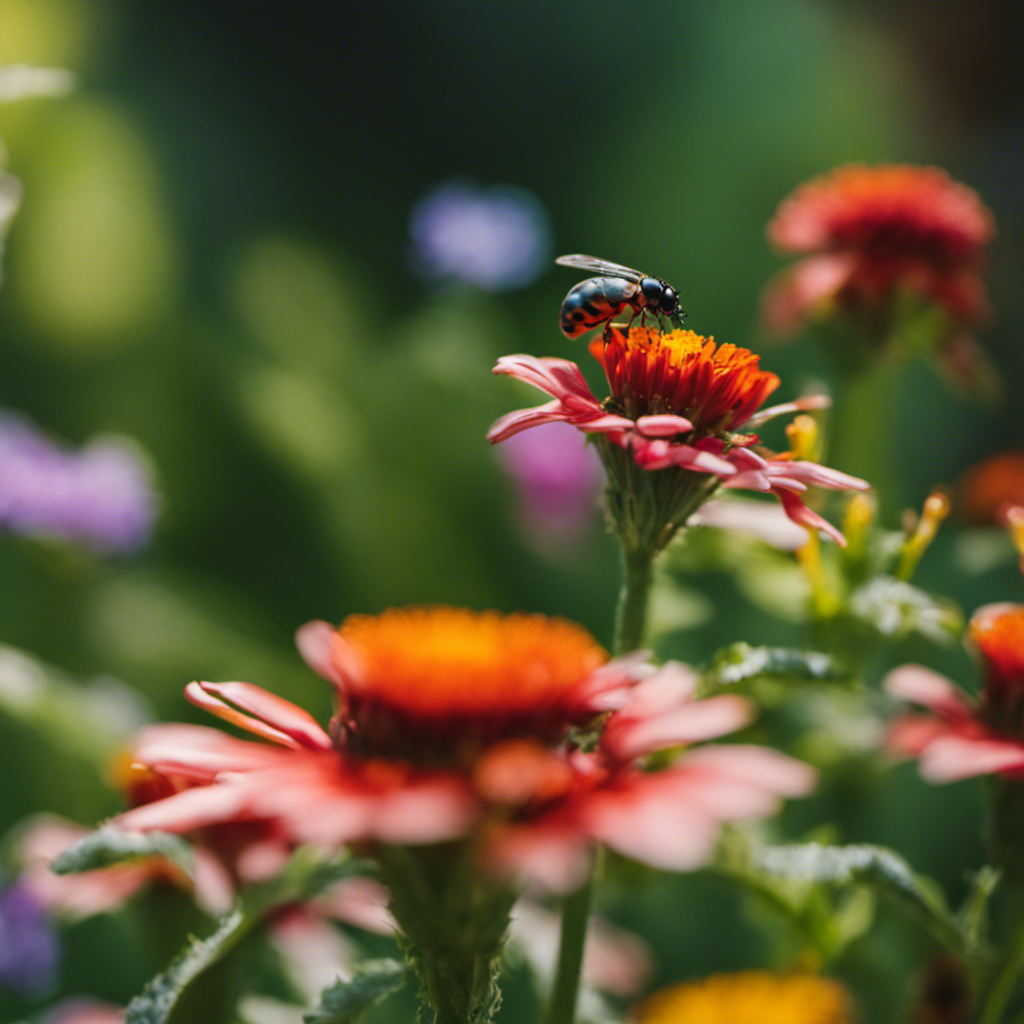
Attracting beneficial insects to your garden is a natural and eco-friendly way to repel pests. These insects play a crucial role in maintaining a healthy ecosystem by preying on harmful pests, reducing the need for pesticides.
To attract beneficial insects, you can create a habitat that offers food, water, and shelter. Planting a variety of flowering plants not only enhances the beauty of your garden but also attracts pollinators like bees and butterflies. These pollinators help with plant pollination, leading to better yields.
Additionally, you can create a bug hotel or install bird feeders to provide a welcoming environment for beneficial insects. By incorporating these practices, you can encourage the presence of beneficial insects and promote a balanced and thriving garden ecosystem.
Physical Barriers
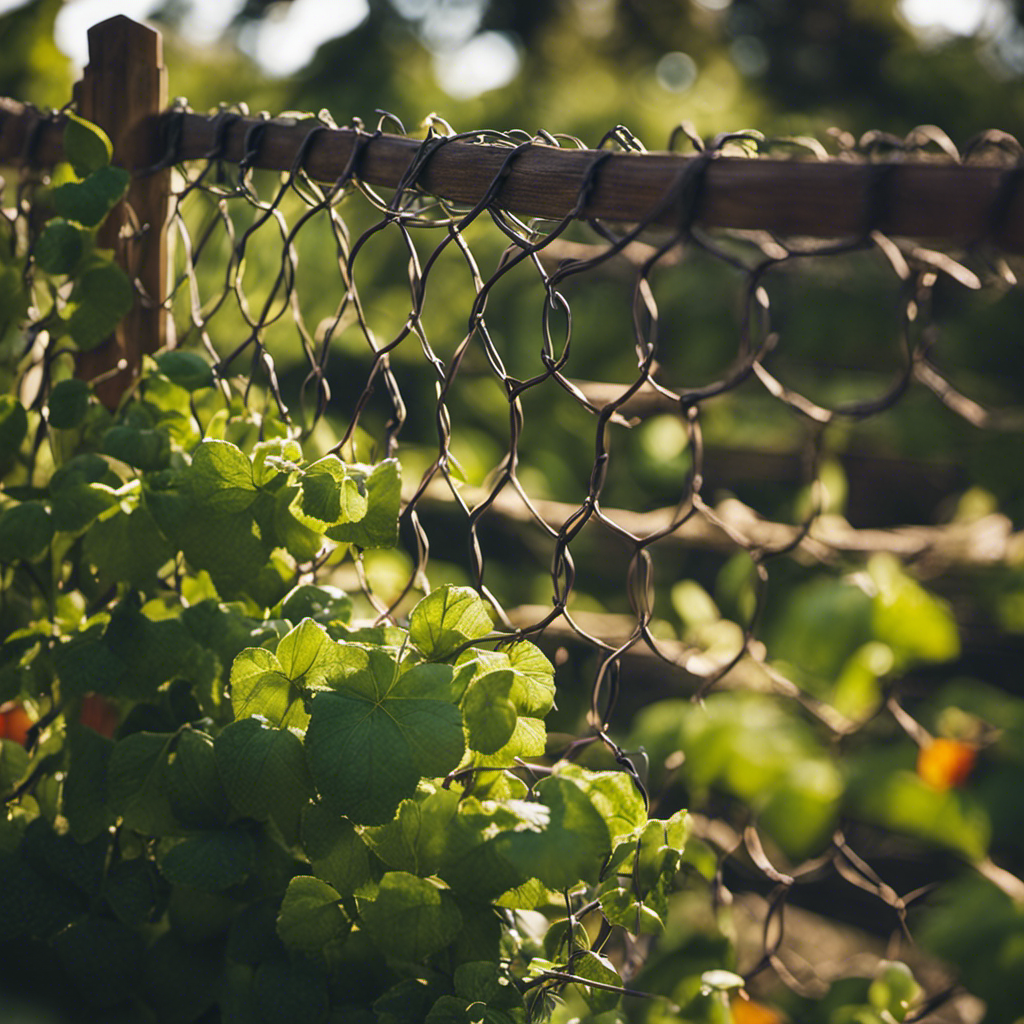
Creating physical barriers is an effective way to protect your garden from pests. One simple method is to install a sturdy fence around your garden, which keeps intruders out and safeguards your plants.
Additionally, there are other physical barriers you can use to enhance your pest control efforts:
-
Vertical gardens: Growing plants vertically not only saves space but also creates obstacles for pests. Hanging baskets or trellises can deter crawling insects and make it harder for them to reach your plants.
-
Companion planting: Certain crops, when planted together, act as natural barriers against pests. For instance, marigolds repel aphids, while garlic keeps mosquitoes away. By strategically placing these companion plants throughout your garden, you can create a pest-resistant environment.
-
Mulching: Applying a layer of organic mulch around your plants serves as a physical barrier, making it challenging for pests to access your garden. Furthermore, mulch helps retain moisture and suppresses weed growth, benefiting your plants in multiple ways.
Organic Sprays
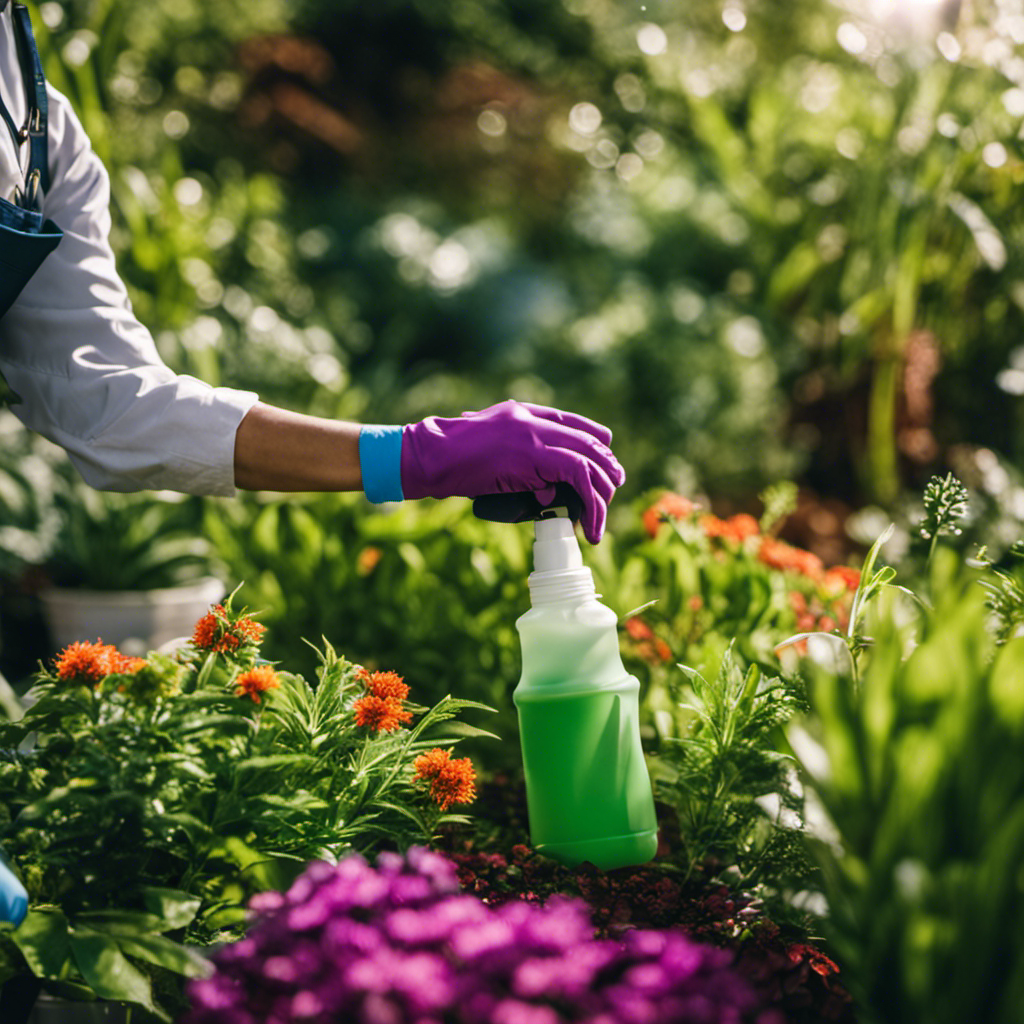
To protect your garden from pests without using harmful chemicals, incorporating organic sprays into your pest control strategy is a great option. Organic sprays are made from natural oils and homemade remedies, making them safe and environmentally friendly.
Natural oils like neem oil, peppermint oil, and garlic oil are effective in repelling a wide range of pests without causing harm to plants or beneficial insects. Diluting these oils with water and spraying them directly onto plants can deter pests effectively.
You can also use homemade sprays made from a mixture of water, dish soap, and vinegar as an organic alternative for pest control.
Crop Rotation
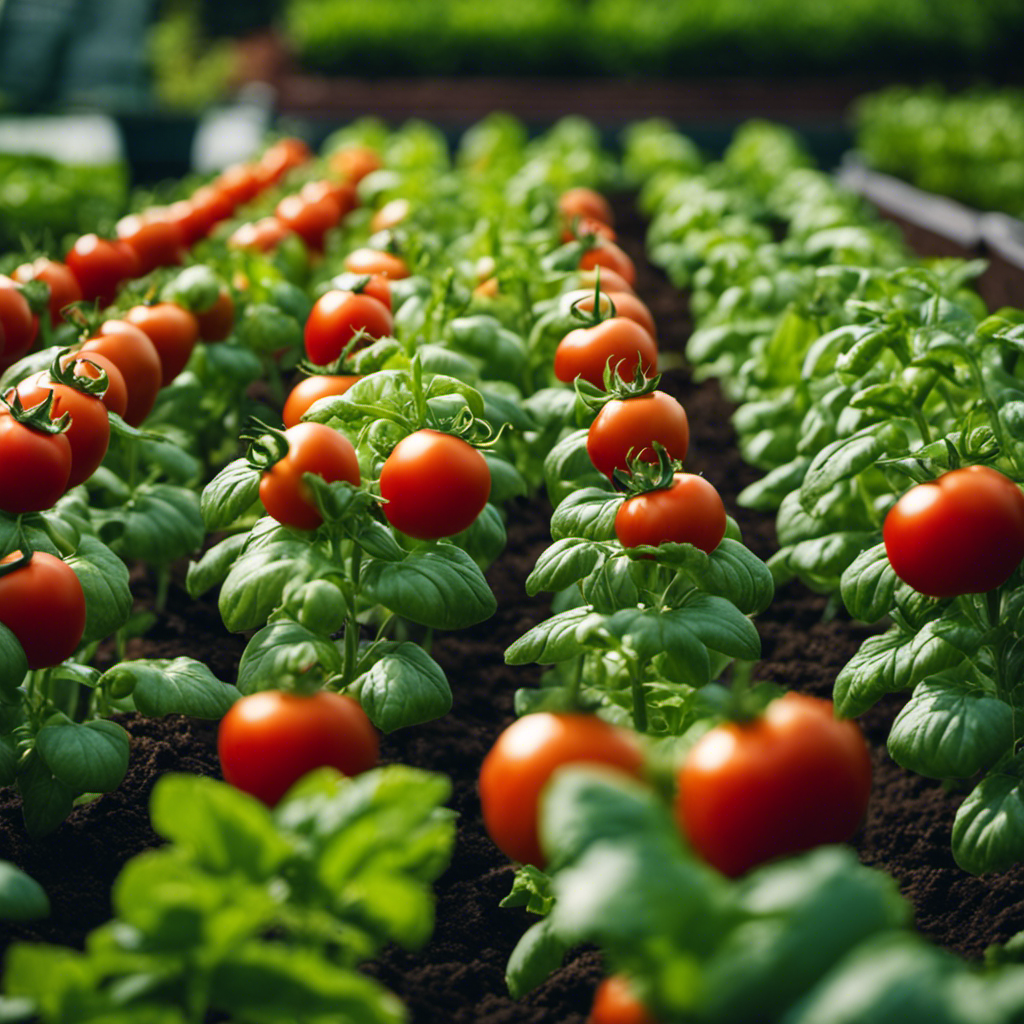
In order to protect your garden from pests without using harmful chemicals, it’s important to incorporate crop rotation into your pest control strategy. Crop rotation is a simple technique where you alternate the planting of different crops in different areas of your garden each year. This practice helps prevent the buildup of pests that specifically target certain crops, reducing the need for pesticides.
Let’s explore three key benefits of crop rotation:
-
Companion Planting: By rotating crops, you can strategically plant pest-repellent crops alongside susceptible ones. For instance, planting marigolds near tomatoes can help deter nematodes.
-
Pest-Resistant Varieties: Some crops naturally have built-in resistance to pests. By rotating these pest-resistant varieties, you can disrupt the life cycle of pests and minimize their impact on your crops.
-
Improved Soil Health: Different crops have different nutrient requirements. Crop rotation helps maintain soil fertility by preventing the depletion of specific nutrients and promoting overall soil health.
Conclusion
Adopting eco-friendly pest control methods isn’t only beneficial for our plants and crops, but it also helps create a healthier and more sustainable environment.
By using natural repellents, promoting the presence of beneficial insects, implementing physical barriers, utilizing organic sprays, and practicing crop rotation, we can effectively manage pests without causing harm to the ecosystem.
With a little research and effort, we can develop a green thumb while minimizing our impact on the planet.
